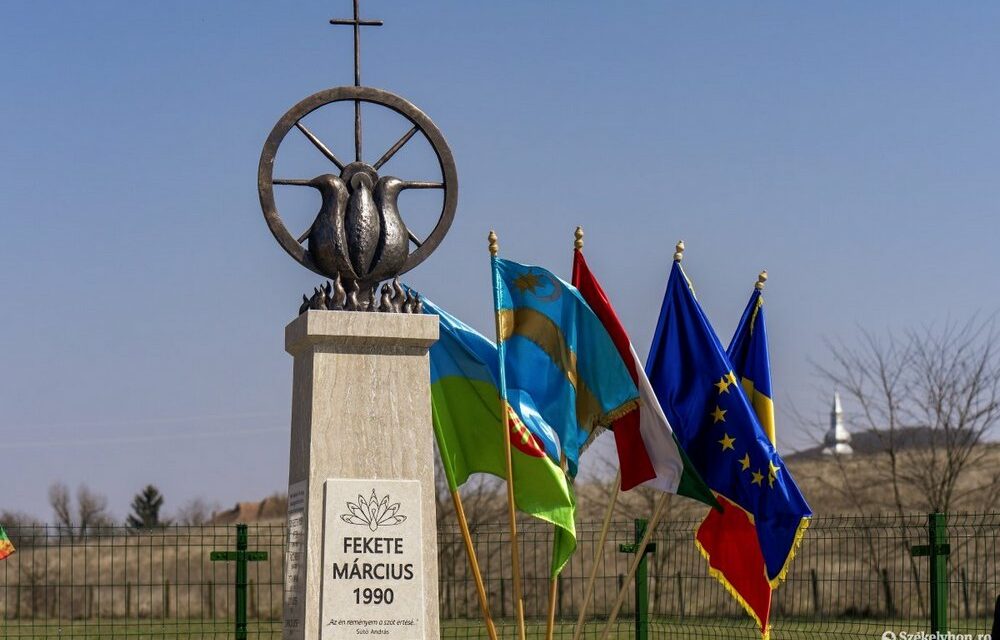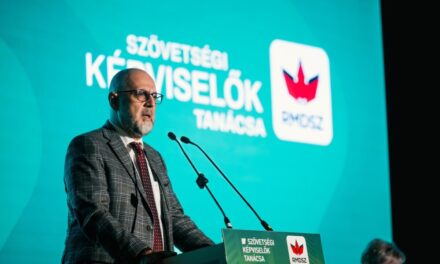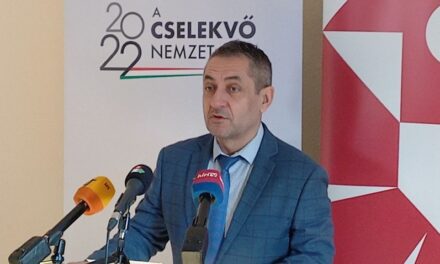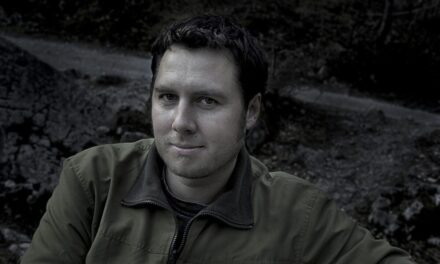In Marosszentgyörgy, which is integrated with Marosvásárhell, the bloody Romanian-Hungarian clash of 1990, etched in memory as Black March, was recalled on Sunday afternoon at the memorial erected last year in the settlement's cemetery.
At the commemoration, Szabolcs Sófalvi, the mayor of the settlement, reported that he was subjected to official harassment after the monument was erected last year. He visited the offices until he proved that the monument erected at the intersection of the Reformed and Roman Catholic cemeteries, evoking Romanian, Hungarian and Roma symbols, commemorates the victims of the events and, as such, did not require a building permit.
As the mayor recalled, in March 1990, the Hungarian and Roma communities were hurt, but they do not want to take revenge.
They want to work to prevent a similar tragedy from happening. "Nothing and no one will prevent us from coming here every year and bowing our heads to those who defended their settlement," declared the mayor, who urged the parties who were once against each other to forgive each other and move on.
The letter sent to the event by Péter Szijjártó, Minister of Foreign Trade and Foreign Affairs, was read by László Tóth, Consul General of Hungary in Csíkszereda. The minister found it uplifting and exemplary that in 1990 the Roma of Marosszentgyörgy undertook a fellowship with the attacked Hungarians. He stated: belonging to the Hungarian nation is not a question of origin, but of free commitment. He encouraged everyone to assume their identity even during the Romanian census period. He mentioned that true patriotism is not directed against other nations.
According to the minister, in 1990, as in 1848, they only wished that the Hungarian nation and the Hungarians of Vásárhely could continue their development in peace and security, that they could use their mother tongue freely, that they could build a national institutional system, that they would not be drawn into a foreign war, that they would be responsible national government, which is able and able to make responsible decisions. "We don't want anything else today either," he declared.
"The Black March in Vásárhely should always teach us that people and nations should fight for prosperity not against each other, but by helping each other," Péter Szijjártó wrote in his letter.
Christian Democrat member of parliament Lőrinc Nacsa, who participated in the event, drew the audience's attention to the stakes of the Hungarian election. According to him, it will be decided on April 3 whether Hungary will have a government that thinks in terms of a nation, or one that is unable to do so and does not want to.
He encouraged those present to contribute their votes so that a real national assembly can be formed in Budapest again, which will continue the national politics of the past years.
On March 19, 1990, Romanian village men armed with machetes and axes were transported to Marosvásárhely to "protect" the town from the Hungarians. The violent, in many cases drunken men ransacked the headquarters of the Romanian Hungarian Democratic Union (RMDSZ) and severely abused the writer András Sütő. The anti-Hungarian pogrom attempt continued the next day, but then a Hungarian counter-demonstration was also organized. The Hungarian protesters and the gypsies who came to their aid chased the Romanian peasants from Husáng and the Romanian protesters from Marosvásárhely who sympathized with them from the main square of Marosvásárhely.
The clashes resulted in 5 deaths (3 Hungarians and 2 Romanians) and 278 wounded. After the events, the Romanian justice system only investigated the Hungarian counter-reaction, brought charges against only Hungarians and Roma, and only them were convicted.
MTI
Photo: Vince Haáz / Szekelyhon.ro













